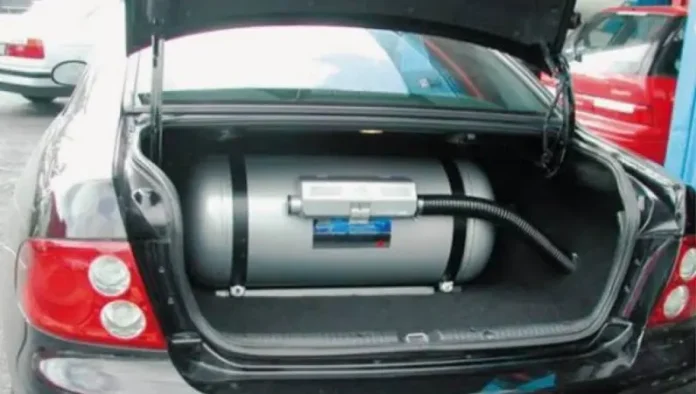The Presidency has sought to allay concerns regarding the safety of Compressed Natural Gas-powered vehicles, recently introduced in Nigeria as an alternative to petrol-powered cars.
The Special Adviser to President Bola Tinubu on Information and Strategy, Bayo Onanuga, dismissed these fears in a post on X yesterday while responding to reports on Malaysia’s plan to phase out CNG-powered vehicles by 2025.
Recall that the Malaysian government announced plans to phase out CNG vehicles and end the sale of natural gas vehicles by July 2025.
According to local media source Free Malaysia Today, Malaysia’s Minister of Transport, Anthony Loke, made this announcement at a press conference on Monday. He explained that the decision was intended to protect road users and the public from the potential hazards posed by ageing CNG tanks.
Loke was quoted as saying, “These NGV tanks have a safe usage lifespan of approximately 15 years, and if they are not replaced, they become unsafe to use and may fail at any time.” From July 1, 2025, CNG-powered vehicles will no longer be registered or allowed to operate in Malaysia.
However, Onanuga clarified that Malaysia’s policy was focused on the safety of Liquefied Petroleum Gas (LPG), not CNG. He added that Nigeria chose CNG specifically for its safety and cost-effectiveness, with plans underway to develop domestic tank manufacturing capacity.
Onanuga wrote, “Some clarification on Malaysia’s plan to phase out CNG-powered vehicles: “The Malaysian issue relates to the safety of LPG, NOT CNG. In the original report, Transport Minister Anthony Loke stated, ‘There are also some car owners who have modified their vehicles using liquefied petroleum gas (LPG) cylinders, which are very dangerous.’
“NGV covers both CNG and LPG. Nigeria, in its transition, has adopted CNG ONLY, not both, due to valid safety and cost concerns regarding LPG.”
Onanuga further noted, “Malaysia’s programme for CNG-powered vehicles struggled, achieving only a 0.2% conversion rate over 15 years. By contrast, nations like India, China, Iran, and Egypt have seen considerable success.”
He added that Malaysia faced difficulties in replacing 15-year-old tanks due to limited manufacturing capacity, while Nigeria, in its first year of adopting CNG, is already addressing this.
Malaysia introduced CNG for taxis and airport limousines in the late 1990s, while Nigeria began its own CNG initiative in 2024 as an alternative transportation fuel.


